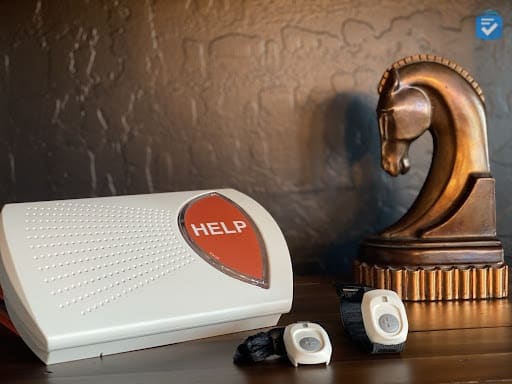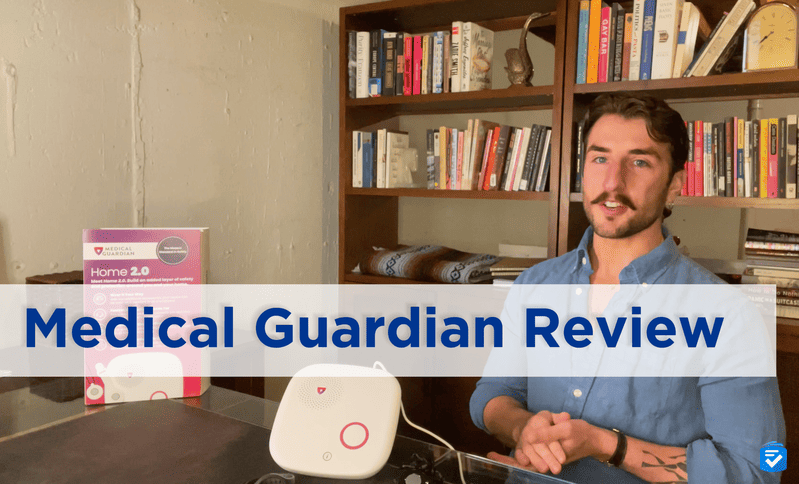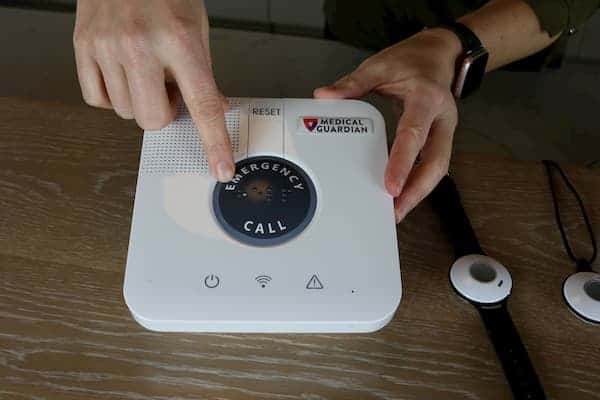The Best Medical Alerts for Alzheimer’s Disease and Dementia
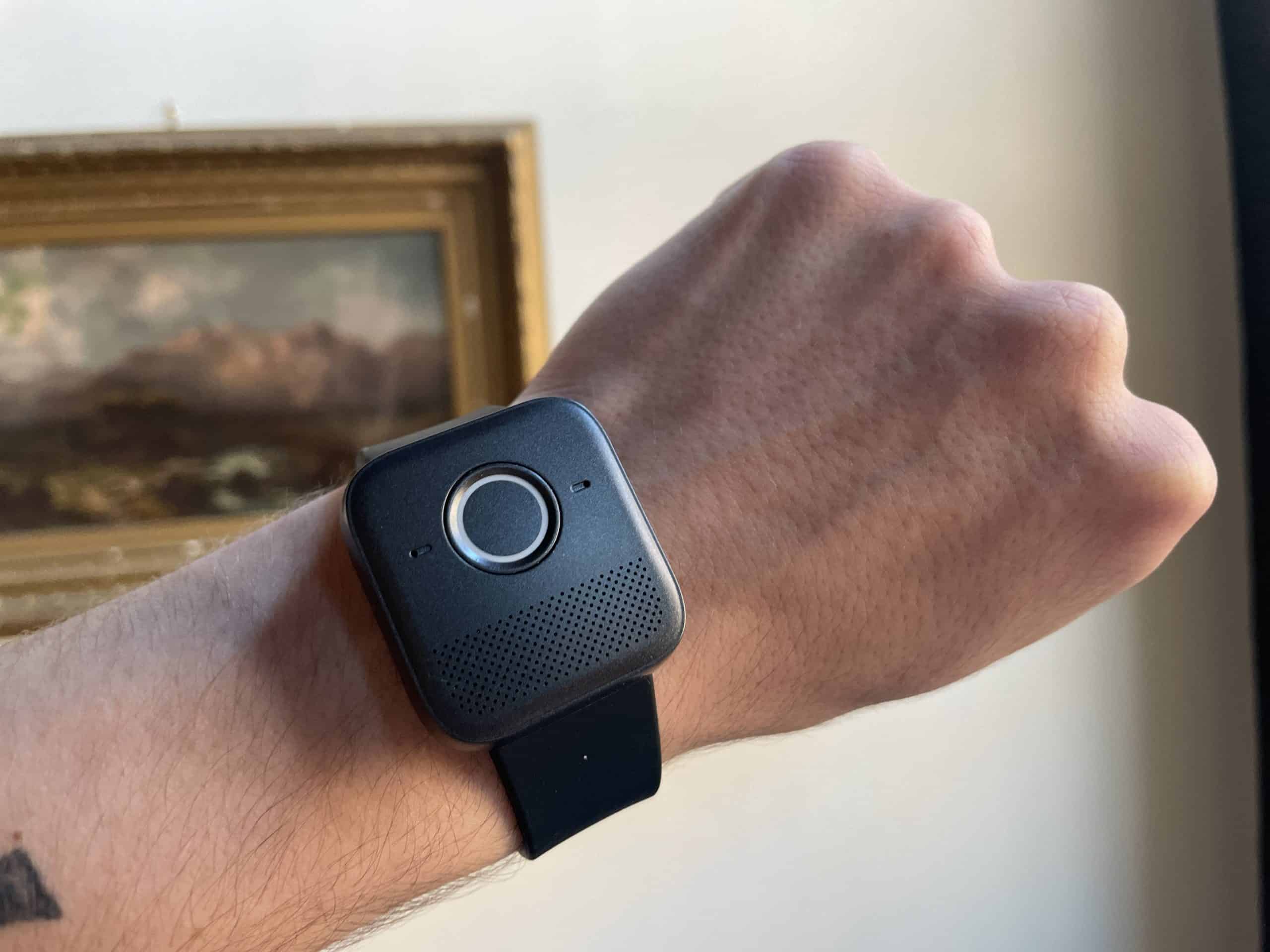
For people with dementia, a medical alert system can be the difference between staying safely at home and needing to move to a care facility. The right device gives families peace of mind while helping their loved ones maintain independence for as long as possible.
After testing dozens of systems, we found Medical Guardian's MGMini Lite performs best for dementia care. It connected us to help in just eight seconds, faster than any other device, and its app allows caregivers to track a user’s live location. Other standout options include the Lively Mobile2, with its dedicated nurse hotlines, and Bay Alarm Medical's systems, which offer accurate fall detection at a lower cost.

Our Top Picks
- Bay Alarm Medical : Best Overall
- Medical Guardian : Fastest Response Times
- Lively : Best Mobile System
- MobileHelp : Best Budget Option
- UnaliWear Kanega Watch : Best Battery Life
1. Bay Alarm Medical - Best Overall
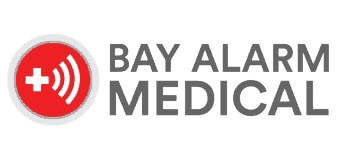
855-675-0754
What We Like Most:
- No activation fees
- Monthly contracts
- Discounted bundle systems
- AT&T and Verizon networks available
Overview
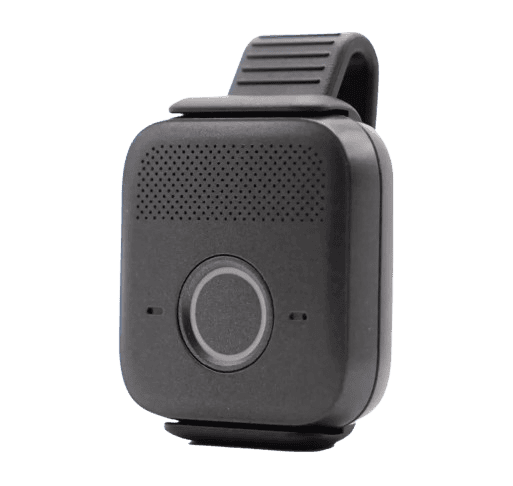
Credit: Bay Alarm Medical
Bay Alarm Medical offers multiple device options, but the SOS Micro is our top recommendation for those with dementia. This mobile device can be worn as a pendant or wristband, and it gave us quick access to help.
In our tests, the average response time was 16 seconds. We also appreciated the Bay Alarm Medical app, which allowed us to keep an eye on location, battery levels, and even step counts of the device. Fall detection also worked reliably.

Pricing
The SOS Micro costs $149 for the device and $34.95 monthly for monitoring ($44.95 with fall detection). Monthly contracts are available, and no long-term commitments are required.
>>Read more: Bay Alarm Medical Costs
Drawbacks
While the SOS Mobile is rated IPX7 for water resistance, meaning we could temporarily immerse it in water, it wasn’t quite as waterproof as the Lively Mobile2.
Our Verdict
The SOS Micro is a great choice for dementia care. It’s affordable, reliable, and can be worn comfortably all day long.
To learn more about our experience with this company, read our full Bay Alarm Medical Review.
Pros
- Caregiver tracking
- Optional fall detection
- Up to three days of battery life
- No activation fees
Cons
- Lack of notifications in the app
- Fall detection is not included
2. Medical Guardian - Fastest Response Times

877-947-4512
What We Like Most:
- Eight-second average response time
- 4G LTE cellular network
- Step and activity tracking
- Month-to-month contracts
Overview
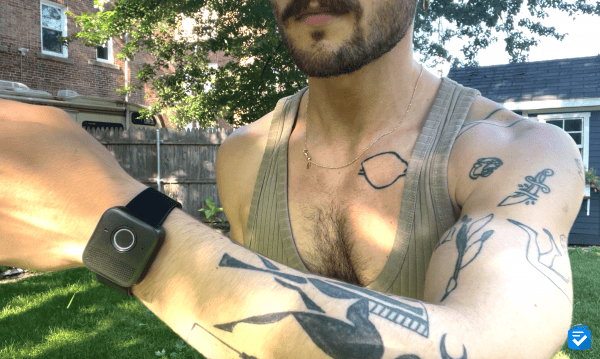
Medical Guardian provides a variety of devices, but the MGMini Lite is particularly well-suited for individuals with dementia or Alzheimer’s. This water-resistant wristband features a built-in speakerphone and works anywhere, even in the shower. During our tests, the GPS function was consistently accurate, providing emergency responders with our precise location every time.
>>Read more: MGMini Lite Review
What impressed us most was how quickly response agents picked up—in just eight seconds on average. That’s faster than any other company we tested. Plus, every time the button was pressed, our designated contacts got instant notifications through the MyGuardian portal.
MyGuardian (available on web or smartphone) offers family members real peace of mind. Through it, you can check your loved one’s location anytime, make sure their device is charged and working, and get push notifications whenever they call for help.
Pricing
The MGMini Lite costs $149.95 upfront and $46.95 monthly for monitoring. While you can opt for monthly, quarterly, or yearly billing, longer commitments come with discounts. It’s certainly one of the more expensive options.
>>Read more: Medical Guardian Costs
Drawbacks
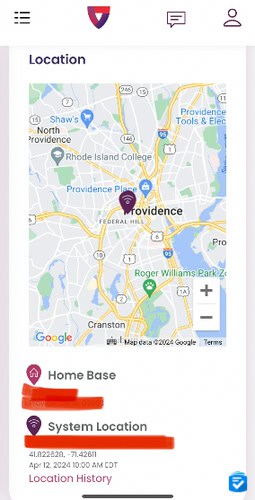
The $150 equipment fee is steep, and the monthly charges aren’t cheap. Additionally, fall detection adds another $10 per month. If you’re on a tight budget, Lively has more affordable choices.
Our Verdict
Yes, it costs more than other systems, but the MGMini Lite’s caregiver features and GPS tracking make it worth every penny for families dealing with dementia.
Check out our full Medical Guardian review for more details.
Pros
- Lightning-fast response times
- Detailed caregiver tracking
- Long battery lives and short recharge periods
- Step and activity counting
Cons
- Higher overall costs
- No activity tracking on home systems

3. Lively - Best Mobile System

855-403-6340
What We Like Most:
- Useful app for caregivers
- Optional nurse hotlines
- Accurate fall detection
- 32-hour battery life
Overview
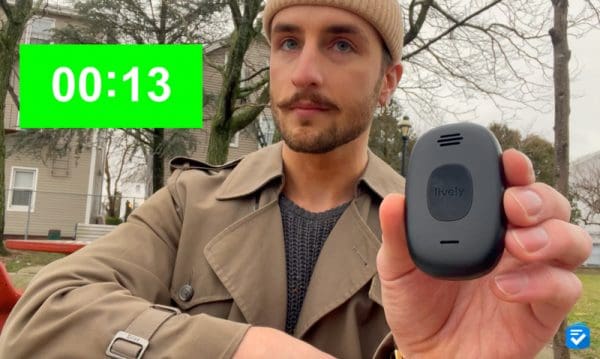
For only $24.99 a month, the Lively Mobile2 offers many features at a great price. This simple black pendant can be worn on a lanyard, and it provides quick access to help.
When the button is pressed, your family receives a notification via the Lively Link app, and you’re connected to 24/7 professional monitoring. Through this app, family members can check your location, device status, and battery level.
Lively’s basic plan includes app access and urgent response features, while the premium plan includes access to a nurse-staffed hotline. This extra support could be invaluable for families managing Alzheimer’s or dementia.
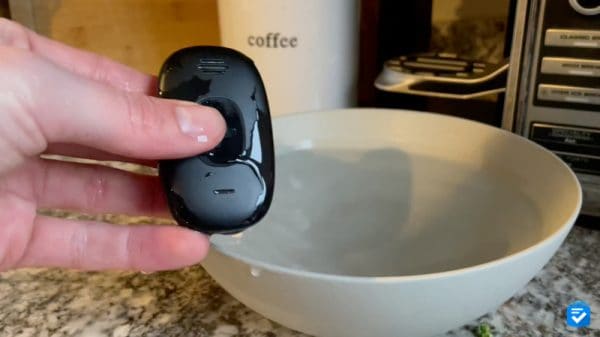
Pricing
The Lively Mobile2 costs a one-time $79 for the device itself, and then it requires a monthly $24.99 for monitoring. The nurse hotline and fall detection each cost an extra $10 monthly.
>>Read more: Lively Medical Alert Pricing
Drawbacks
Lively’s Mobile2 is their only device, so if you need a home medical alert system, we’d recommend Bay Alarm Medical.
Our Verdict
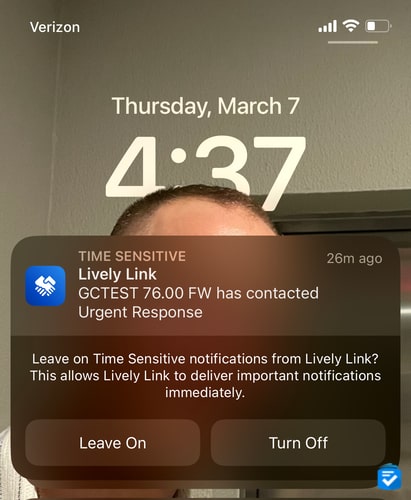
If you want an affordable and easy-to-use mobile medical alert, the Lively Mobile2 is a great choice.
To learn more about this device, read our full Lively Mobile2 review.
Pros
- Can be submerged in water
- Caregiver tracking through Lively Link app
- On-call nurse and care advocate available
- 40-hour standby time
Cons
- $25 to $35 activation fees
- No home system
4. MobileHelp - Best Budget Option
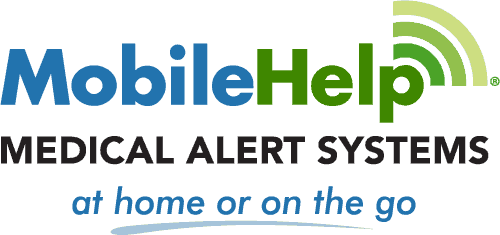
800-915-8738
What We Like Most:
- Many products to choose from
- No equipment fees
- Systems from $24.95 per month
- Caregiver portal
Overview
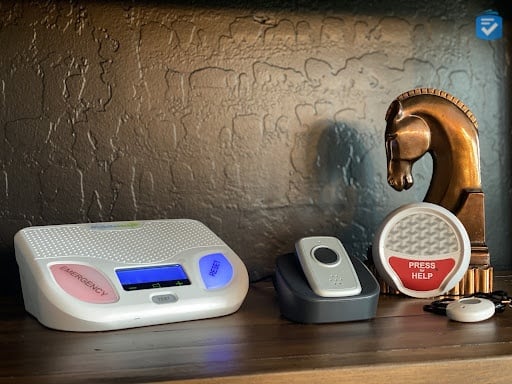
With no fees or equipment fees, MobileHelp systems are among the most affordable we’ve tested. MobileHelp also includes free lockboxes with all of its systems. These allow first responders to enter a user’s house without having to break down the door.
For those with dementia, the Micro pendant is an ideal option, one that connected us to help in an average of 26 seconds. While this is a bit slower than other systems on this list, it’s still faster than average. Additionally, with each of our test calls, response agents were able to accurately report our location.
Pricing
MobileHelp home systems start at $24.95 per month, and the Micro costs $34.95 per month. Regardless of the system you choose, you’ll pay no activation or equipment fees.
>>Read more: MobileHelp Costs
Drawbacks
MobileHelp does not have any sort of caregiver app. If remote tracking is important to you, then a system from Medical Guardian or Bay Alarm Medical will be a better match.
Our Verdict
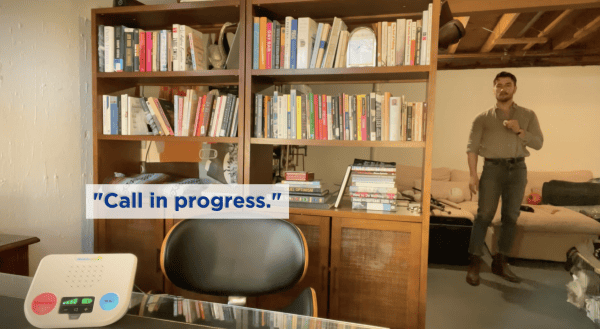
MobileHelp delivers excellent value for budget-conscious families, with comprehensive features at unbeatable prices.
To learn more about our experience with this company, read our full MobileHelp review.
Pros
- Free equipment
- Starting at $24.95 per month
- Monthly contracts
- No activation fees
Cons
- Water-resistant devices
- No caregiver app
5. UnaliWear Kanega Watch - Best Battery Life

What We Like Most:
- Four quick-swap batteries
- Medication reminders
- Waterproof smartwatch
- Fall detection included

Overview

The UnaliWear Kanega Watch is the only device on this list that includes fall detection at no extra monthly cost. This smartwatch uses a unique system of multiple batteries, so you never have to take it off for charging. It’s also waterproof, so you can even wear it in the shower.
This watch keeps you connected wherever you are—it uses Verizon when you’re out and about and Wi-Fi at home. Swapping batteries is a breeze and can be done without even taking the watch off. It even comes with two chargers. You can set up medication reminders to help you stay on top of your prescriptions. Plus, with four adjustable sizes, it will fit any wrist comfortably.
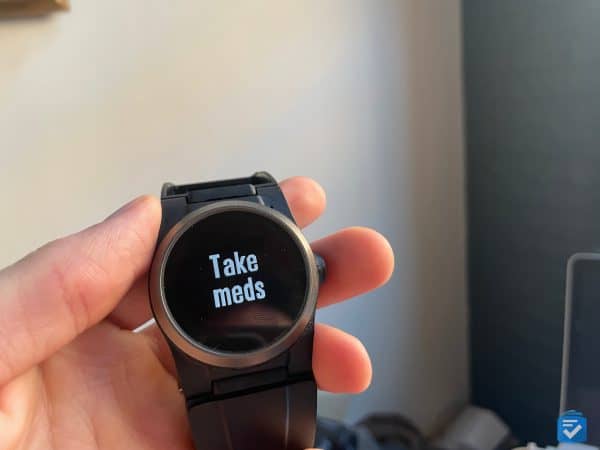
Pricing
Although technically, there’s no equipment fee, the cost for the watch, accessories, and activation on the annual plan is $779.40 for one year. Setup fees are the same on the monthly plan — $299 — and you’ll pay a monthly subscription fee of $84.95 on top of that. Paying annually saves you $20 a month, or $240 each year, on monitoring costs. Regardless, these are the highest monitoring prices we’ve seen.
Drawbacks
There is no app with the Kanega Watch, so you won’t be able to check in on your loved one and see their location, if their device is low battery, or if they’ve walked around on any given day.
Our Verdict
The Kanega Watch is a good choice for people who don’t require constant remote supervision, or for those who have someone living with them to provide care.
To learn more about this device, read our full Kanega Watch review.
Pros
- Waterproof
- Four rechargeable batteries
- Fall detection included
- No equipment fees
Cons
- $299 watch and activation fees and pricey monitoring costs
- No tracking app for caregivers
Medical Alert Systems and Dementia
Medical alerts offer a vital lifeline, enabling individuals to quickly summon assistance when needed. When an alert is activated, experienced call center professionals promptly connect to evaluate the situation. Because these alerts link directly to live, trained staff, there's less ambiguity if a person is disoriented or unable to communicate, ensuring the monitoring center dispatches help without delay.
Modern medical alert devices have features such as GPS and caregiver tracking, the latter of which allows you to keep better track of your loved one even when you can't physically be there.
Choosing the Right Medical Alert
Dementia impacts memory, visual processing, and coordination.1 When shopping for a medical alert system, you should prioritize the following:
Simple design: Choose wearable devices like watches or pendants that become part of someone's daily routine. Waterproof options are ideal since they can stay on during showers, eliminating the risk of forgetting to put them back on.
Fall detection: Someone with dementia might not be able to reach their button after falling. Automatic fall detection (usually $5-$10 monthly) can trigger help even when the person can't respond.
Caregiver tracking: Look for systems that let family members monitor location, battery status, and daily activity. The best apps provide comprehensive device information and instant emergency notifications.
GPS capability: Reliable location tracking through cellular networks or Wi-Fi is essential. Home systems offer more precise locations but only work at home, while mobile systems work everywhere.
Bottom Line
In the U.S., it’s estimated that 6.7 million people ages 65 and older have Alzheimer’s or dementia, and this number could increase to 13.8 million by 2060.2 While many of us can’t take care of our sick family and friends full-time, a medical alert system will give you the peace of mind that if they need help, they’ll get it.
Why Trust Us
At TheSeniorList, our team of caregivers, experts, and healthcare professionals conducted over 5,000 hours of research and testing to recommend the most reliable brands and devices. Here's what we did:
- Tested 50 medical alert devices from 15 different brands
- Surveyed 1,250 seniors and caregivers on medical alert system usage
- Consulted with nurses, EMTs, and caregivers who specialize in elder care
- Published dozens of videos showing our testing process
- Evaluated verified customer reviews from the Better Business Bureau
Our Methodology
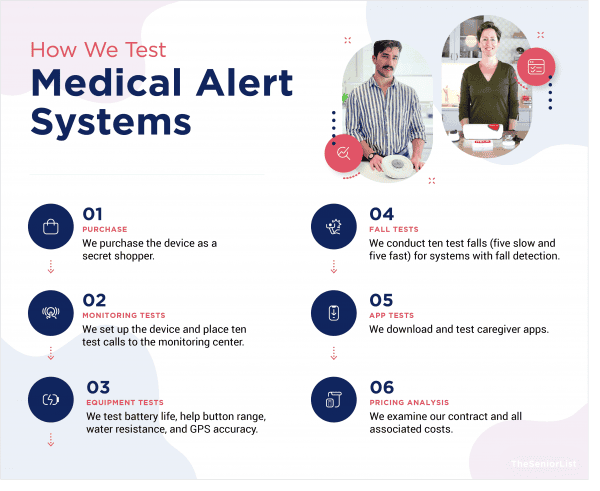
People with Alzheimer's or dementia face unique challenges with medical alert systems. They might forget to press the button or wear their device altogether. That's why standard features often aren't enough.
We put 12 medical alert devices through rigorous testing, focusing on what matters most for memory-related conditions:
GPS capabilities: Wandering is a real concern for families dealing with dementia. Medical alert systems with GPS let both loved ones and emergency responders track someone's location.
Caregiver features: The best smartphone apps let family members check a system’s live location. This feature is especially useful for those who wander, a common occurrence in those with dementia.3
Activity monitoring: We looked for systems that alert caregivers when the help button gets pressed, plus notifications about temperature changes, location updates, and daily movement patterns.
Fall detection: Since falls cause so many injuries in older adults, automatic fall detection can be lifesaving when someone can't reach their button.
Long battery life: If you're going to rely on a mobile system, it needs to last more than a day on a single charge.
Frequently Asked Questions
-
What if someone with dementia forgets to wear their medical alert device?
Except for voice-activated systems, a medical alert is useless if not worn. Because of this, we recommend prioritizing comfort so that your loved one can wear their device all day.
-
Do medical alert systems work if someone with dementia can't remember how to use them?
Many systems are designed with simplicity in mind, often requiring just a single press of a large button, and fall detection automatically calls for help, even if a person doesn’t press a button. The monitoring center staff are also specifically trained to assist callers who may be confused or unresponsive.
-
Can family members track someone with dementia using these devices?
Most modern systems include GPS tracking through smartphone apps. Caregivers can see real-time location, check if the device is charged, and receive instant notifications when emergency calls are made. This feature is especially helpful for people who wander.
-
How much do medical alert systems for dementia cost?
Medical alert system prices range from $25-$70 monthly, plus device costs of $0-$300. We always recommend choosing a system that does not lock you into long-term contracts.
-
Will a medical alert system prevent someone from needing to move to a care facility?
While not a guarantee, medical alert systems can significantly extend the time someone with dementia can safely live at home. They provide 24/7 emergency response, give families peace of mind, and help maintain independence longer. However, they work best as part of a broader care plan.


